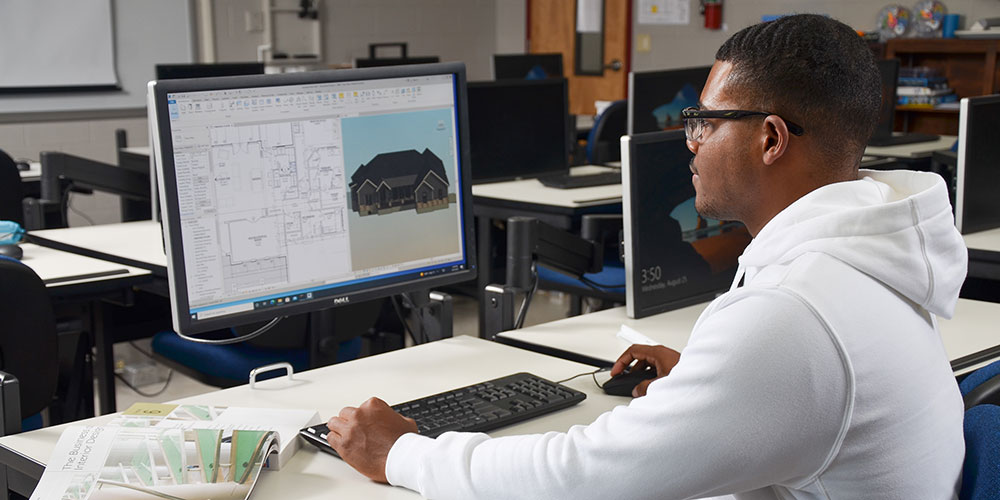Career-Specific Program Overview
In the Computer-Aided Drafting and Design Technology program, students learn basic techniques for residential and commercial drafting, structural steel drafting, machine, and mechanical drafting to prepare them for entry-level positions in the drafting industry. Throughout the program, students learn and work with the following drafting and 3-D modeling programs: AutoCAD, Inventor Professional, Revit Suite, and Autodesk Civil 3D. Realistic projects and working with clients are incorporated into the semester projects. Program curriculum includes the study of design concepts and sustainability theories to give students an edge in today’s workplace.
Career Opportunities
- Drafters (architectural, machine, or engineering)
- Drafting designers
- AutoCAD technicians
- Structural technicians
- Estimator
- Salesperson
- Electrical and electronics drafters
Degree/Certificate Requirements
Program Learning Outcomes
Students who successfully complete the Certificate of Proficiency in Computer-Aided Drafting and Design Technology will be able to:
- Be able to identify and define drafting symbols and terminology
- Demonstrate competency in computer-aided drafting software.
Program Learning Outcomes
Students who successfully complete the Technical Certificate in Computer-Aided Drafting and Design Technology will be able to:
- Identify and define drafting symbols and terminology.
- Demonstrate competency in computer-aided drafting software.
- Create working drawings for manufacturing, construction, and telecommunications industries.
Program Learning Outcomes
Students who successfully complete the Associate of Applied Science Degree in Computer-Aided Drafting and Design Technology will be able to:
- Identify and define drafting symbols and terminology.
- Demonstrate competency in computer-aided drafting software.
- Create working drawings for manufacturing, construction, and telecommunications industries.
- Interpret working drawings for manufacturing, construction, and telecommunications industries.
- Demonstrate safe and professional work habits.
- Demonstrate the technical skills needed to secure employment in the CADD industry.
